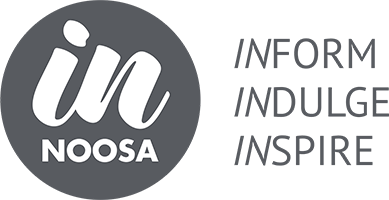
Barefoot Corporate Warrior: Should We Flex The Intuition Muscle?
INSIGHT: Go With The Gut? Flexing the Intuition Muscle. Paul Bird ponders the ins and outs of intuition.
 I have been wondering how much, if at all, I should trust my intuition.
I have been wondering how much, if at all, I should trust my intuition.
Should we follow our intuition all of the time, some of the time or not at all? In fact, does intuition even exist and if so how do we understand if it is a sage guide to behaviour and action?
We often talk about following our “gut instinct” or even some ethereal “feeling” about a person or situation. Essentially, intuition involves bypassing the hard, logical, analytical thinking process which the brain excels at for “something” which is supposed to deliver rapid, high-quality decisions and implies a form of unconscious wisdom at play. Defies logic?
An immediate connection with someone is an example of intuition. Understanding that a proposition is a good deal without rigorous scrutiny would be another. So would involuntary feelings of trust or distrust about a person who we have only just met.
Steve Jobs said: “Intuition is a very powerful thing, more powerful than the intellect”. He also said: “Have the courage to follow your heart and intuition. Everything else is secondary”.
A pretty strong endorsement for intuition. He was obviously a fan. As with most areas of human behaviour, there is a body of research that is building in and around the topic of intuition. Neuroscientists and psychologists are interested in identifying and measuring intuition with some studies finding that intuition actually exists. That is always a good start.
I remember the sensation and publicity in the mid-2000s around the book: Blink, The Power of Thinking Without Thinking by Malcolm Gladwell. I admit to not having read the book but do recall as a stand-out revelation the contention that spontaneous decisions are often as good as, or better than, carefully planned and considered ones, hence the title Blink (Wikipedia). According to Wikipedia the book “presents in popular science format research from psychology and behavioural economics on the adaptive unconscious: mental processes that work rapidly and automatically from relatively little information.”
I have always taken some pride in my ability to “suss out” a person fairly quickly. I claim no superior innate ability in this area but put this down to my early career years as a journalist where one is exposed to all manner of people saying all manner of things for all manner of reasons.
Exposure to the kaleidoscope of humanity helps in developing a sense of what people might be like, what they are “on about” and whether to take them at face value. If intuition is a form of wisdom then journalism was a type of intuition training in my case.
This experience supports claims that we can hone the efficacy of intuition with practice. A quick online search turns up a myriad of recommendations when it comes to flexing one’s intuition muscle.
I think one obvious way is to develop the practice of observation. We are often so caught up in our mind, endlessly and repetitively focussing on our own concerns that we fail to actually pay attention to what is going on around us. This is certainly an aspect of mindfulness which might assist us to improve our intuitive ability by allowing us to pick up on the nuances and small “tips” which are available to us when making decisions or coming to conclusions. Observation becomes a form of learning, informing our unconscious.
Gut instinct implies some form of emotional response, a physical sensation.
In my experience it mostly signals “danger, danger – be careful”. It is often associated with saying “no”, or negative reactions. The question here is whether gut instinct is just another description for fear. If so, it might be robbing us of exciting and valuable experiences – in other words, poor decisions.
The ability to tap into intuition’s “Yes” moments might need to be developed. Courage can play a part. It sometimes feels that following our intuition almost involves a “leap of faith” in trusting ourselves.
When it comes to intuition then, the ability to discern the difference between fast wisdom and reactive fear could be crucial to good decision-making. Equally, might intuition be confused with optimism or tendencies to over-confidence and risk-taking? There is another aspect to this matter also worth considering. When subsequent events show that our intuitive call was an example of poor decision-making or a complete misjudgement, we may exhibit a tendency to go in to bat for our intuition.
If we are an intuition fan we can invent arguments which support the original intuitive decision, despite evidence that we were wrong to react in a certain way. This could simply be our optimism bias, which I have previously written about, or an ego-saving turn of a “blind eye”. Our interpretation of the success or failure of previous intuitive calls could be another form of self-delusion designed to make our decisions “right” most of the time.
Whatever your view of your intuitive power it seems that a well-developed intuition can bring benefits.
So is it time for you to commit to some gut (instinct) building, some intuition muscle training?



